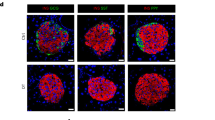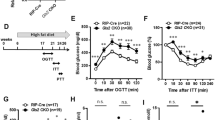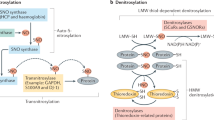Abstract
Taken together the Islets of Langerhans form a nutrient sensing network spread throughout the pancreas. They are tightly connected to the source organ - the intestine - and the target organs - liver, muscle, and fat cells. The expression of a unique set of proteins enables [beta] cells, the most frequent islet cell type, to detect elevated blood glucose levels and secrete insulin accordingly. Neighbouring [beta]-cells achieve tighter regulation of glucose-induced insulin secretion by coordination through cell surface proteins. They also adjust their secretory pathway capacity and flow to avoid being damaged. The immediate reaction of the [beta] cell to nutrients is regulated by translational mechanisms, while longer term adaptations involve changes in transcription. Glucose increases protein synthesis in the [beta] cell overall and especially that of some secretory proteins including insulin. This effect may be mediated through recognition of RNA motifs in the untranslated regions of those messengers. Failure of essential molecular components of the nutrient sensing system due to mutation or weakness paired with cellular stress can lead to dysfunctions, which on a larger scale manifest as diseases like diabetes mellitus.
Similar content being viewed by others
Article PDF
Author information
Authors and Affiliations
Corresponding authors
Rights and permissions
About this article
Cite this article
Suckale, J., Solimena, M. Pancreas islets in metabolic signaling - focus on the &946;-cell. Nat Prec (2008). https://doi.org/10.1038/npre.2008.1724.1
Received:
Accepted:
Published:
DOI: https://doi.org/10.1038/npre.2008.1724.1



